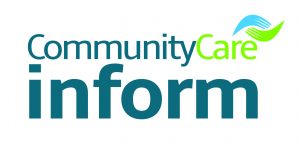
 This article comprises excerpts from a podcast on Community Care Inform about strengths-based practice in action, following the publication of a practice framework and handbook on strengths-based approaches in February by the Department for Health and Social Care. The full podcast includes discussion of how social workers can develop the skills they need for strengths-based practice, and how managers can take a strengths-based approach to supervision, and is free to access on Spreaker and iTunes. Inform subscribers can access supporting resources including a written transcription and key points from the episode on Inform Adults.
This article comprises excerpts from a podcast on Community Care Inform about strengths-based practice in action, following the publication of a practice framework and handbook on strengths-based approaches in February by the Department for Health and Social Care. The full podcast includes discussion of how social workers can develop the skills they need for strengths-based practice, and how managers can take a strengths-based approach to supervision, and is free to access on Spreaker and iTunes. Inform subscribers can access supporting resources including a written transcription and key points from the episode on Inform Adults.The experts
Tricia Pereira: Principal social worker, practitioner development lead for the London Association of Directors of Adult Social Services (ADASS) and chair of the National Principal Social Workers’ Network. Co-author of the strengths-based approaches practice handbook from the Department of Health and Social Care.
Carmen Colomina: Social worker and practice development manager at the Social Care Institute for Excellence (SCIE). Co-author of the strengths-based approaches practice handbook.
Professor Samantha Baron: Professor of social work at Manchester Metropolitan University. Co-author of the strengths-based approaches practice framework from the Department of Health and Social Care
What skills do social workers need for strengths-based practice?
Tricia Pereira
“We’ve had many years of care management and the case management approach, and strengths-based practice just reinforces the importance of relationship-based interventions, really spending time talking to individuals, families, talking to communities, but finding out from them what’s important to them, what matters. And these are the inherent, basic skills of social work.
We are, as social workers, great conduits for facilitating change. We do that through listening, through understanding, through appreciating others and their current situations, by valuing the skills and knowledge that they have themselves, because everybody has a life, you know? When we work with older people, they had careers, they may have had families, children, whatever. So at the moment in time when we meet them we have to take all that into consideration. And it is a very empowering approach, or it can be, just recognising what the individual has and what they can bring. It’s about sharing the power.
As a social worker I don’t go into the intervention thinking, ‘I know best, I know what to do, I can tell you what to do about your life and your situation.’ As the Care Act says, the individual, they are the experts in their lives and their situations, and that’s the way that we should be working with them.”
How can social workers carry out strengths-based assessments?
Key points from Carmen Colomina
- It’s not easy to identify one’s strengths. It is very difficult. One of the most difficult questions in an interview is, ‘What are your strengths?’ We all struggle with that. It’s not easy. And normally we talk to people who are not at their best. So identifying what are their strengths is not easy.
- It’s not a question of asking the person, ‘What are your strengths?’ It’s a question of not focusing on the problem but on the individual’s life to identify their strengths.
- If you ask somebody point blank ‘What are your strengths?’ you’re just going to knock them down. They’re going to look at you blank, thinking, ‘What are you talking about?’ But it’s talking about, ‘What did you do in the past? What type of things do you like doing? What type of things do you enjoy? What are your hobbies? What do you do in a normal day? What is a good day and why is that a good day?’
- Out of all of those types of questions, you as the professional identify the strengths and then have a discussion with the individual in terms of making them aware, helping them gain awareness that those are strengths. Or, ‘Who is around you? Who do you enjoy time with? Do you like the outdoors? Do you like the indoors? Are you a social person?’ It’s more that than saying, ‘What are your strengths?’




 Bournemouth, Christchurch and Poole
Bournemouth, Christchurch and Poole  Hampshire County Council
Hampshire County Council  Oxfordshire County Council
Oxfordshire County Council  South Gloucestershire Council
South Gloucestershire Council  Wokingham Borough Council
Wokingham Borough Council  Webinar: building a practice framework with the influence of practitioner voice
Webinar: building a practice framework with the influence of practitioner voice  ‘They don’t have to retell their story’: building long-lasting relationships with children and young people
‘They don’t have to retell their story’: building long-lasting relationships with children and young people  Podcast: returning to social work after becoming a first-time parent
Podcast: returning to social work after becoming a first-time parent  How managers are inspiring social workers to progress in their careers
How managers are inspiring social workers to progress in their careers  Workforce Insights – showcasing a selection of the sector’s top recruiters
Workforce Insights – showcasing a selection of the sector’s top recruiters 

 Facebook
Facebook X
X LinkedIn
LinkedIn Instagram
Instagram
Yet again another re packaging of old school theories to fit the current resource based models being pedalled by the government . Practitioners like myself 25 years on have been delivering this model of practise for years. I really object to the teaching us to suck eggs approach that many young managers and practitioners who are career practisers push . Invariably these models are pushed at the adult teams using care management . More specialist teams in mental health working in multidisciplinary formats have been delivering this style of practise for years. What stops us delivering is a lack of funding , resource cuts and managers pushing the rebranding of old skills and not respecting what seasoned practitioners offer .
Yes, you are correct John that these models of practice have been delivered for years so is there any relevance of pushing this by the government.
Unfortunately, it is. I don’t know about adult services but in children services, particularly child protection the organisation has no clue of such model of practice and if they profess to follow relationship based practice, it is only tokenism to evidence that on their records but not with real humans.
Social Care, particularly child protection practice is devoid of compassion, humanity and integrity.
There is a culture of blame – blame parenting/ carers when the children are not doing well, are making wrong choices.
Blame the front line worker when anything goes wrong.
Management blame the cuts and the system, very conveniently, when you are responsible.
Strengths based needs assessment, basic social work. Unfortunately, now it is code for cutting POC
It is great to see Strengths-based approaches going mainstream in adult work. I have used solution focused approaches in my social work practice and in teaching SW students and practitioners for many years, and it is clear that the principles and practices of SF fit the description of Strengths -based work prefectly.
i would argue that the SF approach provides humane and inherently anti-oppressive practices that are helpful for people and practitioners who want to be Strengths-based.
For those interested in a more detailed outline of the approach can I suggest Dennis Saleebey’s ‘The Strengths Perspective in Social Work Practice’ (2013), Boston, Pearson, which is unaccounably missing from the Practice Handbook.
Guy Shennan’s (2014) Solution-Focused Practice: A Framework for Effective Communication to Facilitate Change. Basingstoke: Palgrave Macmillan is also a must, and I would shamelessly promote ‘Using Solution Focused Practice with Adults in Health and Social Care’ (2017)
Jessica Kingsley by Judith Milner and me.
Cheers